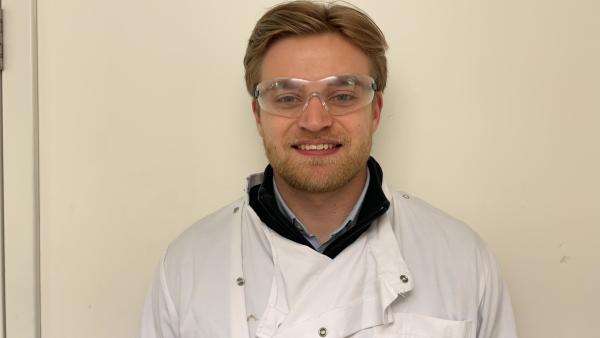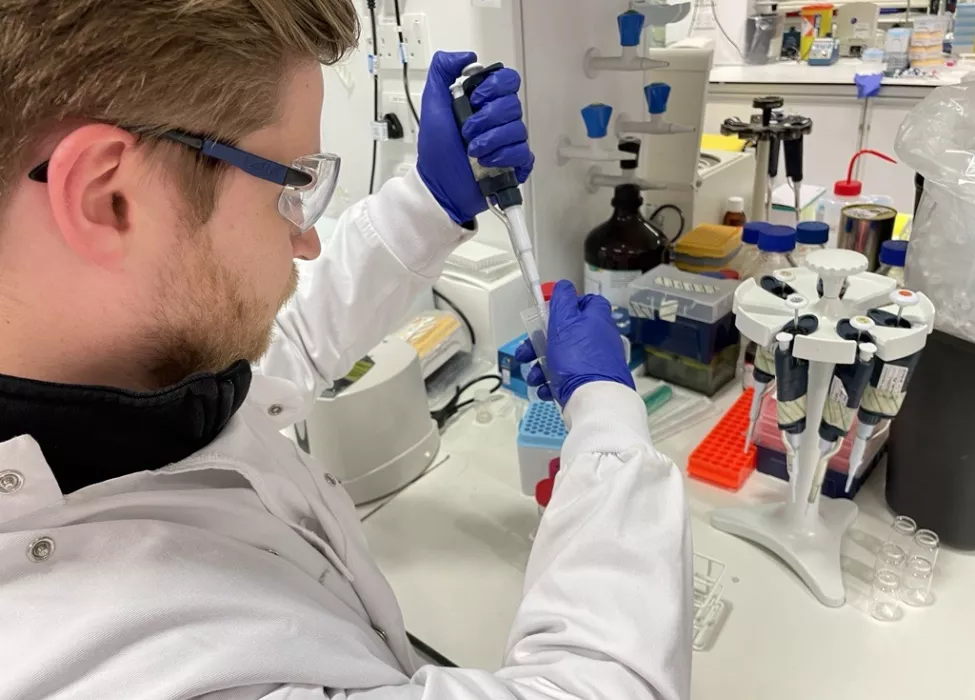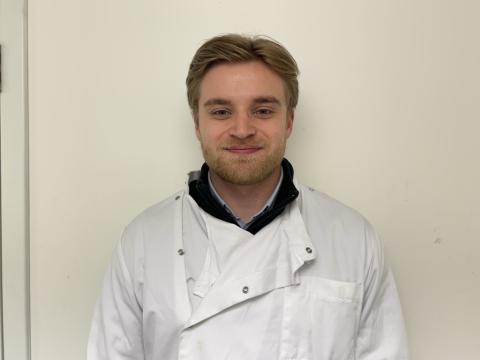
William Bolland is a PhD candidate at the Institut Pasteur in Paris and is the first participant of the Oxford - Pasteur PhD Exchange programme on antimicrobial resistance (AMR). The exchange programme links the biology expertise of Institut Pasteur with the biochemistry expertise of the IOI’s chemistry lab, led by Prof Christopher Schofield.
As part of this programme, Will is spending some time at the Ineos Oxford Institute for antimicrobial research (IOI), benefiting from IOI’s expertise and resources to build upon his research in infectious diseases.
Will’s passion for infectious diseases started early. He opted to study biology at university to learn more about the nature of these infections, and in 2020 pursued a Master’s degree in virology at Imperial College London. During this year, the coronavirus pandemic started, which gave him the opportunity to study SARS-CoV-2.

He decided to pursue coronaviruses for his PhD research in Paris, focussing specifically on the replication and fusion of SARS-CoV-2 in the Virus and Immunity unit (UVI) headed by Prof. Olivier Schwartz. The UVI unit also studies other coronaviruses, like HKU1, which is one of four seasonal coronaviruses responsible for 10-30% of common colds and can cause other serious infections such as pneumonia and bronchiolitis.
HKU1 is a difficult virus to culture – this means it is difficult to grow due to its lack of permissive ‘cell lines’, and therefore to study. This is what brought Will to Oxford and to the IOI - to explore some of the key protein machinery for viral replication.
IOI’s chemistry labs have the technical capacity to study proteins inside the cell and proteases (enzymes which split proteins). The coronavirus genome encodes two proteases which allow the virus to produce the proteins needed for viral replication and therefore they make a good target for antivirals to limit the spread of the virus. If the active site of the protease is blocked, then the virus struggles to replicate. Will’s research in Oxford has involved investigating how antivirals work against these viruses' proteases. IOI’s research on inhibitors against SARS-CoV-2 is transferable to the HKU1 virus as similar approaches about inhibitors can be used.
A biologist by trade, Will has relished exploring the biochemistry techniques at the IOI with regards to AMR and antivirals.
Viruses will always be a threat the need for research and development into AMR and antivirals will always be important, as we never know when we might be endangered by another pandemic. IOI’s research could be vital in preventing future pandemics, as well as lessening their potential impacts. The IOI has provided me an invaluable angle, by allowing me to look at the virus from a protein level.

Will’s research, together with colleagues at Institut Pasteur and the IOI, is trying to solve many challenges. Many people will be affected by coronaviruses, so increased knowledge is essential. Will can also apply some of the techniques the IOI uses to tackle AMR to apply to viruses. Viruses and bacteria are quite different – bacteria are more independent, and viruses require a host to be able to survive. However, they have similar challenges. Viruses are becoming resistant to antivirals just like bacteria are becoming resistant to antibiotics. It’s a difficult problem to solve as viruses evolve quickly, meaning they become able to resist antivirals and even vaccines. In the medium term, Will hopes to take these protease inhibitors back to the lab in the Pasteur to see how they impact on the virus as a whole.
